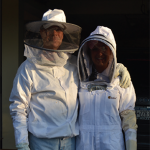
Maksim Kabakou / shutterstock.com
SAN DIEGO—Christopher Ritchlin, MD, MPH, director of clinical immunology research at the University of Rochester Medical Center in Rochester, N.Y., travels to academic medical centers frequently to present research, and the trips give him a chance to interact with a lot of residents. When he brings up basic science, the conversation often falters.
“I’ll say, ‘What’s your concept of the model of lupus today? How do you think about it?’” he said in a session on basic science education at the 2017 ACR/ARHP Annual Meeting Nov. 3–8. “And what I noticed as I travel around is, they looked at me like I was crazy.”
His colleagues agree: The state of basic science education must improve. In the session at which Dr. Ritchlin spoke, panelists reviewed ways of better engaging a new generation of learners, including highly focused Web programs and well-crafted, to-the-point, TED Talk-style lectures.
Dr. Ritchlin said the problem is that, too often, students aren’t taught in ways that allow them to apply basic science knowledge usefully.
“It wasn’t that they hadn’t been trained in basic science,” he said. “It was that the context wasn’t there. And it’s not just the training, [it’s] providing them the ability to be able to fit this into a model they can begin to use and move forward.”
Studies have found that knowledge of basic science comes up in subtle ways, giving clinicians coherence in their understanding of clinical features, even though it might not routinely come up in overt ways during case discussions.
“And in 21st-century rheumatology practice, we know we [must] have a good understanding of science because it’s so important in our therapeutics nowadays,” Dr. Ritchlin said.
Bethany Marston, MD, associate professor of allergy/immunology and rheumatology at the University of Rochester, said that while evidence-based clinical guidelines are clearly important, “sometimes it leads to thinking about simplistic problems in simplistic ways.” Instructors, she said, must give learners “the tools that they need to delve into more complex problems.”
“When to deviate from the guidelines?” she said. “Our residents and our fellows are adult learners, and they don’t want to be taught a curriculum, they want to solve problems. They want the knowledge and the skills that are necessary to solve problems,” she said. “We need to make sure that that relevance is clear.”
Students were busy on their iPads sending emails, googling things, buying stuff on Amazon—i.e., engaged with ‘anything but the lecture.’ —Dr. Desai
Incorporate Drama
Michael Pillinger, MD, professor of medicine at the New York University School of Medicine in New York, N.Y., said the bedrock of an effective lecture is storytelling, not dissimilar from the TV show, Law and Order, which almost always starts an episode with a body, followed by inquiry and a rise and fall of drama that keeps viewers hooked.


